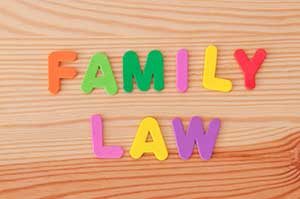
Rhode Island family law attorney David Slepkow recently published the following extensive articles based on divorce, custody and family law issues. This information is useful for families dealing with divorce issues, post-divorce disputes, dependency tax exemptions and the role of a Guardian ad Litem to serve the best interests of minor children in Family Court.
Divorce, Family Law and Custody in RI Articles:
8 Useless Arguments That Are Totally Ineffective in Providence Family Court
Judges are sick and tired of dumb and silly arguments that no longer work in Kent County Family Court or Providence County for that matter. Rhode Island divorce lawyer, David Slepkow discusses worthless and inane legal arguments used in Rhode Island Family court custody, visitation, divorce and child support causes of action. This article provides insight to judges in Family Court who have heard these useless arguments for years. These eight arguments include attempting to stop visitation without just cause and why he should be allowed to visit even if he has not paid his child support.
When Criminal Law and Family Law in Rhode Island Collide
The orders of a family law judge concerning child support, child custody and visitation become even more complicated when domestic misdemeanors involve restraining orders and no contact orders. This article by a RI divorce lawyer and a Providence criminal defense attorney, outlines the best methods to untangle the web were felony cases, misdemeanors and family law come together. Readers learn the benefits of using a Rhode Island criminal attorney who also specializes in divorce laws and the difference between a non-domestic offense and a domestic offense in Rhode Island. The article answers if a district court criminal judge can resolve custody and visitation issues and how long a no contact order remains valid.
How to Retrieve Personal Property under a Restraining Order or No Contact Order
If the judge has issued you a restraining order or a no contact order, exactly how do you go about getting your personal property from your Rhode Island domicile? This article describes several proper and legal ways for an accused individual to obtain their personal items even if the restraining order or no contact order is in effect. Readers also learn how the individual can seek relief from Family Court to accommodate their need to get their personal things.
Determining Which Parent Is Entitled the Federal Tax Dependency Exemption When Claiming a Minor Child
Taking advantage of the federal tax dependency exemption when providing support or care for a minor child can save the parent money on their annual taxes. But exactly which parent is entitled to receive that exemption and who makes the determination? This article provides valuable insight on what to do if a decision pending, property settlement or final judgment is in place, or how the IRS handles these exemptions. Readers learn about Treasury Decision 9408 and Form 8332 if they are a non-custodial or custodial parent. Article authored by a RI child custody lawyer.
The Role of Guardian ad Litem Protecting a Minor Child in Family Court Proceedings
A Guardian ad-litem in Rhode Island plays a crucial role in representing the best interests of a minor child in a family court case concerning their custody, visitation rights and other issues. This article outlines the use of guardians in contentious custody cases or when providing valuable recommendations and insight on how the Family Court judge should decide important issues concerning minor children. Readers learn who makes the final decision affecting the minor child and the costs of retaining the services of a Guardian ad Litem.
